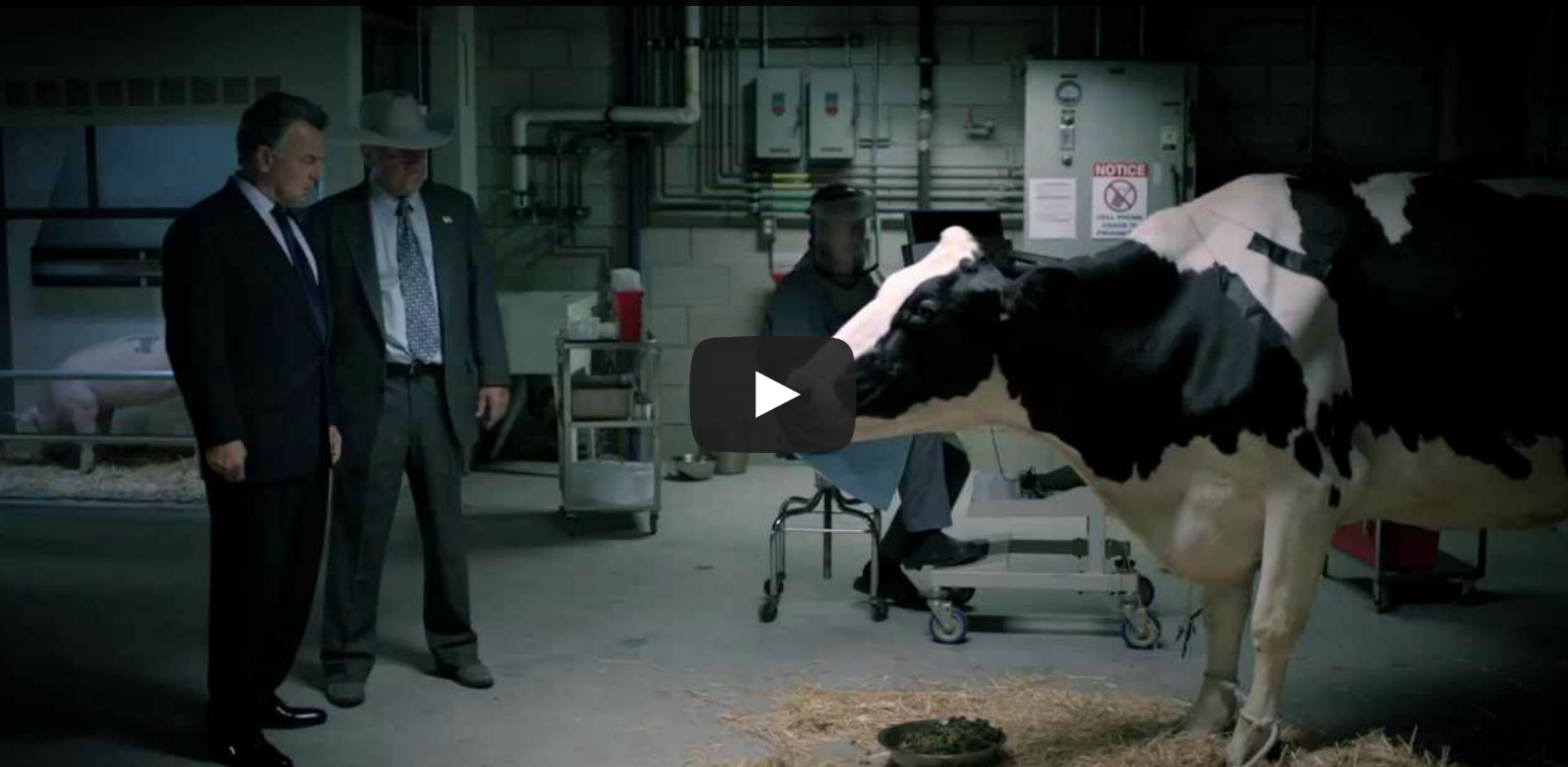This week Chipotle, the fastest-growing restaurant chain in America, and Hulu, the popular TV streaming site, partnered up to launch a new original mini-series called “Farmed and Dangerous,” a satire that looks into the questionable practices of industrial farming in America.
The story of “Farmed and Dangerous” is a simple one: A big agribusiness called Animoil has created a new wonder food that fattens cows up with unrivaled speed and efficiency. The catch? Animoil is petroleum-based. When cows start spontaneously exploding, coverups and animal activists ensue.
What’s impressive about the mini-series is that Chipotle, which loves to frame itself as a champion of sustainable agriculture and the humane treatment of animals, held back from branding itself into the storyline. The actors never once swing by Chipotle for a healthy burrito, for example, nor do they sing the company’s praises in comparison to the unethical practices of Animoil. The show’s young hero is named Chip, but it’s subtle enough not to trigger the audience question: What are they trying to sell me?
This is a valuable lesson for effective video content marketing — make the story about the content, not the company — and one that can be applied to short documentaries as well as scripted entertainment. Here are some other lessons that non-profits and purposeful businesses can take away from Chipotle’s mini-series.
1. It’s not about selling burritos (or whatever your product or mission is); it’s about how can you connect with your audience on a deeper, more meaningful level, even if you do sell them burritos. Chipotle’s marketing executives remarked on the mini-series that it’s not about “product integration” but “values integration” and that the resulting film was meant to strike large emotional chords.
2. Hulu felt comfortable situating “Farmed and Dangerous” among its roster of comedies because the show primarily intends to entertain and has high production value along with recognized talent. Translation: It did not feel like promotion.
3. Since the mini-series didn’t feel like promotion, a number of media outlets (The New York Times, The New Yorker, etc.) highlighted it as innovative, which of course helps to drive a larger audience to the mini-series and to call attention to Chipotle for not calling attention to itself in the film. Very clever!
4. Content is delivered in a series format — in this case four 20-minute segments, which helps to build audience interest over time. With a much smaller budget, you can still do a shorter mini-series, like what we see on AOL Originals.
5. I often refer to original film content put forth by organizations as “video content marketing.” Hulu calls Farmed and Dangerous “brand-authored content” and an example of “brands as studios.” Media outlets call content generated by companies “native advertising.” Clearly the Chipotle mini-series goes to show that video content marketing is being referred to under a growing number of names.

